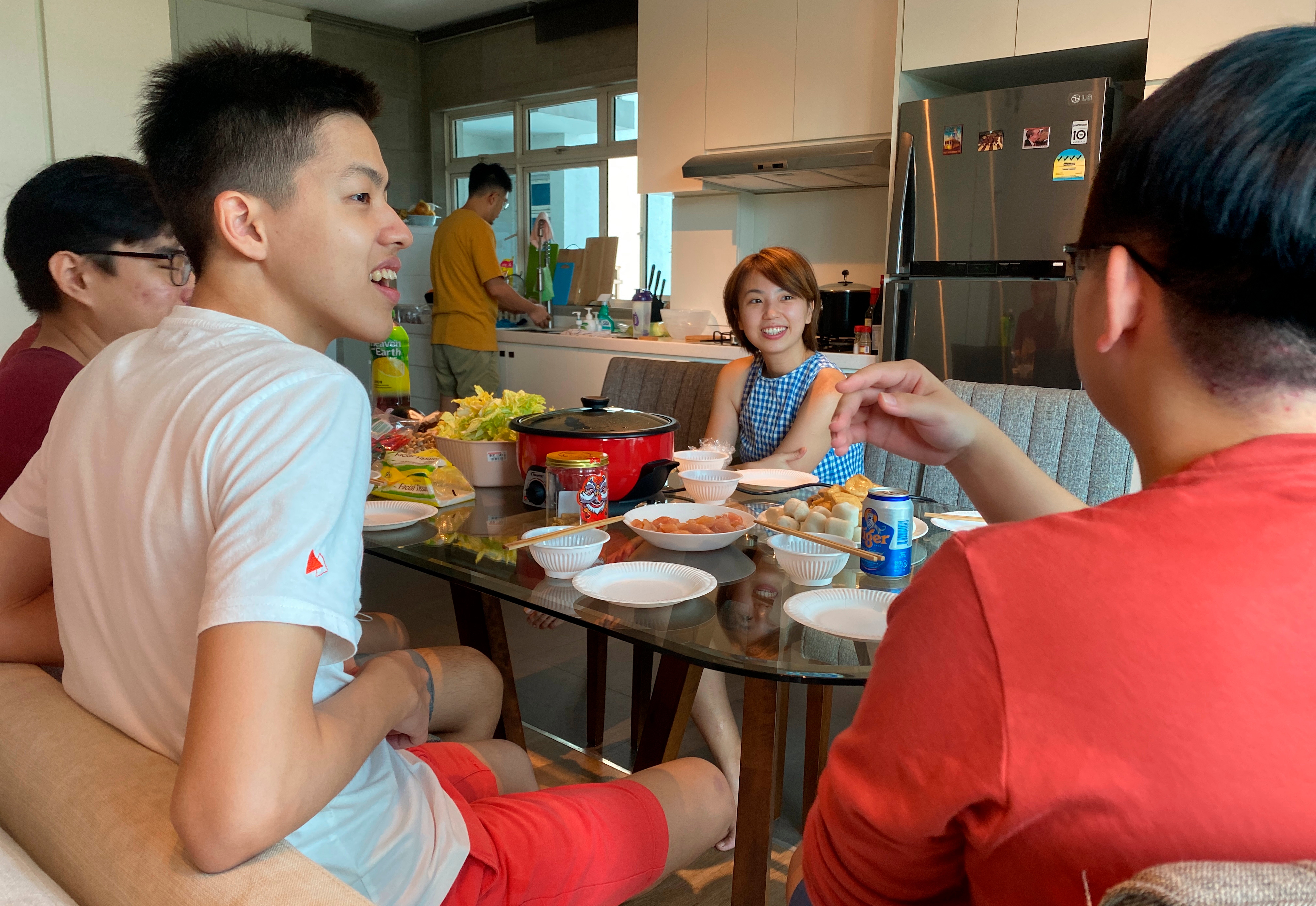Malaysians in Singapore host stranded students for New Year
Many Malaysian workers and students are stranded in Singapore over Lunar New Year

Chan Jit Yen loves Lunar New Year. It is as much about festivities as it is a homecoming for the 31-year-old Malaysian woman.
Chan, who lives in neighboring Singapore with her husband, usually takes a week off work to visit his family in Kuala Lumpur.
They then travel to her hometown in Ipoh, and usher in the year with more visits, meals and celebratory firecrackers.
Now, with the pandemic upending lives on both sides of bridges that link Singapore and Malaysia, Chan cannot travel. Instead, she opened the door of her rented apartment to four Malaysian students
“Especially (for) Malaysian students Chinese New Year has been something that they’re really looking forward to,” Chan said. “I hope they ... feel like home and not feeling left out in Singapore.”
Like Chan, the students are spending their first Lunar New Year away from home. They also have a shared interest in engineering, the field she studied before launching a healthy snacks startup.
Chan heeded a call by the Malaysian Association in Singapore, which asked Malaysians to treat students to a meal over the festive period.
The association eventually matched 25 students to 10 hosts.
“This initiative is all about the food and the people. Food is what brings people together, especially for Malaysians," said management committee member Lee Ji En.
After mulling over several menus, Chan settled on a hot pot lunch. She visited a supermarket early on Saturday, and quickly got to slicing ingredients and preparing tomato and Sichuan peppercorn broths.
Conversation flowed once the students arrived. They discussed university life, work prospects, and their favorite Malaysian cities and dishes.
It was an otherwise quiet celebration for Ter Leong Kern, who visited Chan with three university friends.
Under strict pandemic rules, households in Singapore, which has a handful of coronavirus cases reported daily, can welcome up to eight visitors a day.
At night, Ter, 21, dreamed that he was celebrating with his family at their home in the Malaysian town of Klang.
Ter’s father and mother have seven siblings each, and the family makes the rounds during the holiday season.
“Hope is hope, but reality is still a thing, you know, so we cannot go back,” Ter said. “I hope that the pandemic will go away as soon as possible because it has been very detrimental to all of our daily lives.”
___
“One Good Thing” is a series that highlights individuals whose actions provide glimmers of joy in hard times — stories of people who find a way to make a difference, no matter how small. Read the collection of stories at https://apnews.com/hub/one-good-thing
Bookmark popover
Removed from bookmarks